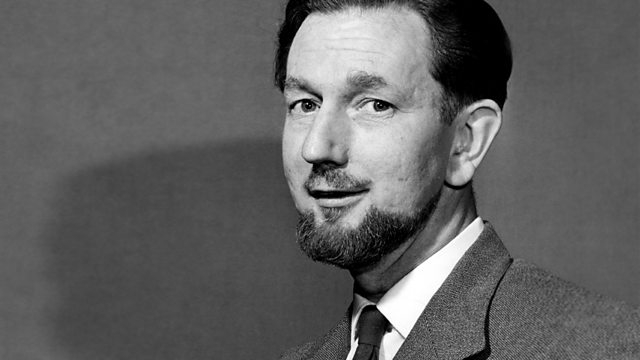He is said to ‘have changed the sound of speech radio’, not just by giving voice to those who until then (the 1960s) had not been given air time, the richness of their county accents too far removed from Broadcasting House’s Received Pronunciation. He won awards for his pioneering use of the new midget tape recorders, taking his microphone out of the studio and down the mines, to the fishing harbours, into the boxing rings and talking to teenagers. He was also a genius at editing, able to cut away an errant ‘s’ or insert a single note into the soundscape with the rudimentary tools then available, a sharp razor blade and a steady hand. But most of all he did away with the omniscient narrator with his RP pronunciation and perfect vowels, using music instead, written and performed by Ewan MacColl and Peggy Seeger. The stories that emerged in his programmes did so through the songs which held them together, not via a disembodied, detached voiceover at one remove. Yet, in spite of his creative expertise, Charles Parker was, in 1972, ‘sacked’ by the BBC as too expensive a radio producer, too profligate, with time and money, and too political. He was already out of step with management, who questioned the value of his work.
Parker, the creator of the extraordinary Radio Ballads, broadcast from 1958 to 1964 on the BBC Home Service (as it was then called), was profiled for Archive on 4 by Sean Street, the poet and radio professor, in a programme produced by Andy Cartwright, who keeps alive the Parker flame by overseeing an annual radio production prize for students. Parker, we heard, was fascinated by the musicality of everyday speech, regarding it as oral poetry as well as social history, preserving memories of lives once lived. Ask the right questions, he soon realised, encourage people to talk freely about their working experiences, the tools of their trade, and you will unleash long streams of memory, words threaded together and spoken like poetry. The miner, for instance, who told him, with enthusiasm, ‘When you hew a lump of coal you know you are the only one to have seen it; the first one to see it.’ Or the railwayman who quick as a flash reported, ‘Railways went through the back of your spine like Blackpool went through rock.’
The ‘actuality of speech’ can be a ‘direct component’ of a documentary, Parker understood, without authorial intervention. A bit like the direct speech of so much podcasting, perhaps, except that Parker had a mission: to conjure up the essence of life for ordinary people across the UK, and to strive really hard ‘to get every syllable right’. He transformed those everyday experiences into something meaningful through arduous redrafting and editing yet never lost that sense of unspoilt, direct witness. His Song of a Road from 1959, for instance, told the story of how the M1 was built from London to Yorkshire, recording how the navvies were paid a penny for each yard of muck they dug up, the stuff of England: ‘What a real bundle of dirt we live on,’ they told him.
Parker could have made something of In Business last week on Radio 4, which took us to two towns in Cheshire with very different experiences of the tough retail environment that we face today. Ruth Alexander went back to Northwich, her home town, where a huge new shopping complex was devised and built after the 2008 financial crash with the intention of reviving the town’s failing high street, funded by the local council (and therefore taxpayers). When Alexander visits, though (with her producer Elisabeth Mahy), they find themselves walking through a huge spider’s web into the central square. There was no one about; many shops were empty, boarded-up.
Only a few miles away in Altrincham, business is booming with a newly revitalised central market in spite of being branded a ‘ghost town’ as recently as 2010 with 30 per cent of its shops vacant. Such stories are common across the country, with some places adapting and thriving post-austerity and the growth of online shopping, while others close by are in rapid decline. It’s an economic story but with huge political overtones, as citizens finally wake up to wasted resources, lost causes and misguided nostalgia. In Altrincham, one man, a Conservative councillor, had what he calls ‘a light-bulb moment’, realising that a grand master plan produced by the town hall would not work and that it was down to individuals and small-scale development to save the town.
The market, built in 1879, is now full of individual traders, mostly cafés and food producers who have replaced the declining number of stall holders. You could call it ‘harmful gentrification’, except that the changed market has revived the town centre, bringing in footfall and creating new jobs. Money was spent but it was low-budget, unlike in Northwich whose fancy new centre cost £80 million. It took hard work and the right people in Altrincham but above all the sense that it was up to the community to make change, not a top-down, developers’ project. A useful lesson, well explained.






Comments